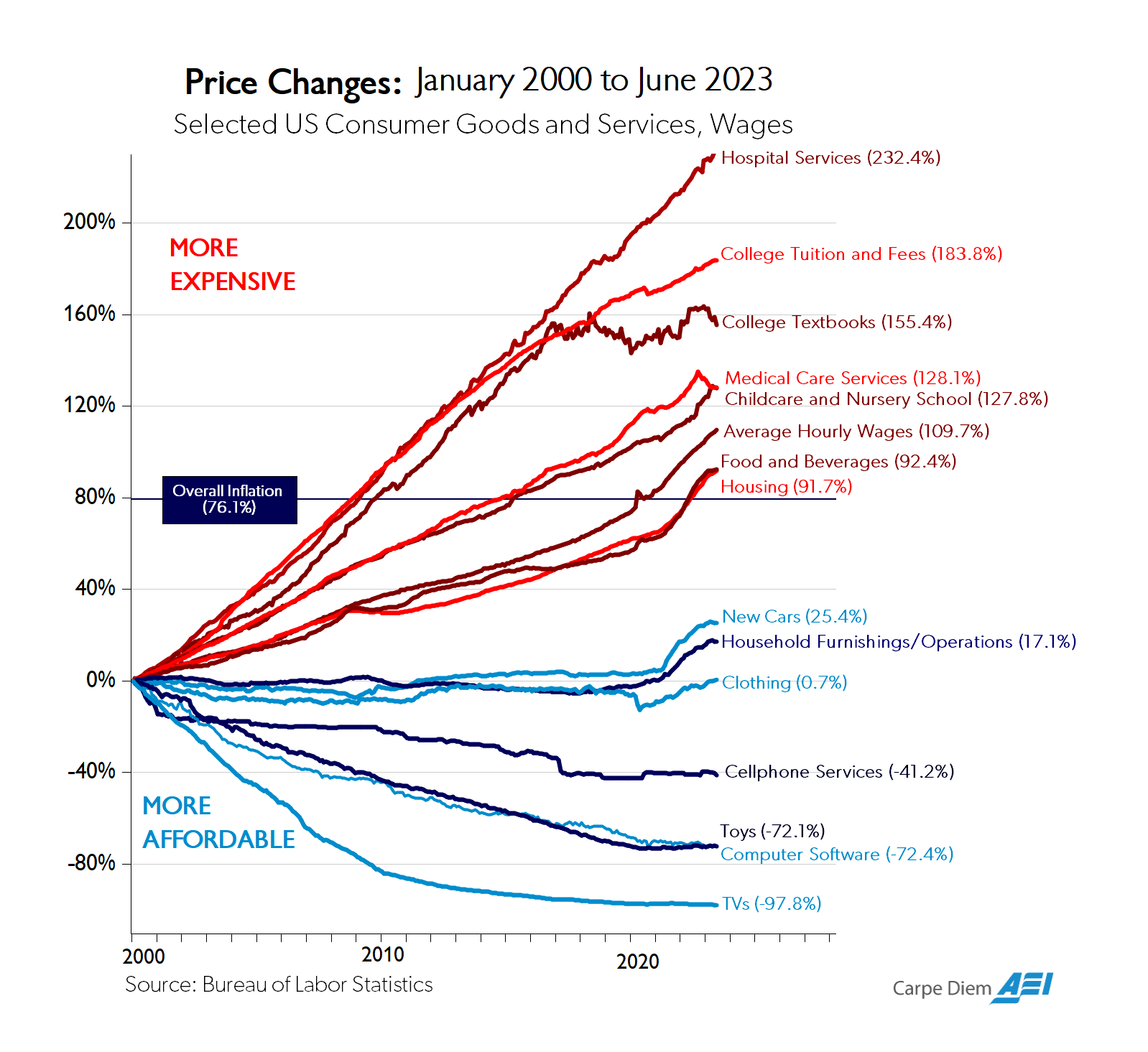My nonpartisan political issues
With the US election behind us, I’d like to share my top four nonpartisan political issues. While I certainly have partisan opinions on other issues, these four issues are issues that I think nearly everyone in the US can get behind.
1. Cost of healthcare, education, and housing
This blog post from the American Enterprise Institute very clearly illustrates the rising costs of healthcare, education, and housing over the past century:

Shockingly, these are more-or-less linear trends. Whether you love or hate ObamaCare, surely it should have had some effect on the cost of, say, hospital services? But it didn’t – the linear trend continued unabated. These linear trends seem immune to the various combinations of Democrats and Republicans we’ve had in executive/legislative power over the past 20 years.
I think this plot is the most important plot capturing the state of the US today. I believe many Americans feel like they’re falling behind because the cost of essential goods and services is rising faster than their wages.
I think this SlateStarCodex blog post best describes the problem and some potential root causes.
I have no solutions to these problems, but I think they are the most pressing issues facing the US today. At minimum, I think we need to understand what’s happening here.
2. Approval voting
Despite the warnings of the founding fathers, today the US is stuck with two largely unpopular political parties. In fact, we’ve had a political party duopoly for nearly the entirety of our country’s existence, and our current duopoly of Democrats and Republicans started in 1860 (despite significant policy realignment since then). Unfortunately, this duopoly is a natural outcome of the simple “first-past-the-post” voting schemes in place throughout most of our country’s elections. While the founding fathers otherwise created a brilliant, resilient system of governance, first-past-the-post voting is one significant limitation.
Despite the bombastic title, I thought this video very nicely summarized the challenges with designing an ideal voting scheme:
As discussed in the video, ranked-choice voting has gained in popularity, but it also has limitations and is quite complex.
Approval voting isn’t perfect either, but in my view, it’s an elegant, “least-worst” solution. Unfortunately, approval voting is never going to happen given (a) its complexity for the average voter and (b) its opposition to the interests of the two major parties.
A very interesting proposal along a similar vein is random voting.
3. Daylight Savings Time
Move clocks forward or backwards, I don’t care, just stop the madness of changing the time twice a year.
4. Advertising to children
Maybe this one is slightly partisan, but I don’t think it is. Advertising to young children is icky and I wish it wasn’t a thing.